Every Israeli prime minister has left indelible footprints on the Jewish state’s history. Although the presidents are technically the head of state, executive power rests with the prime ministers elected by the people.
So who are the individuals who have served as prime minister of the Jewish state? And how did their lives shape what Israel is today?
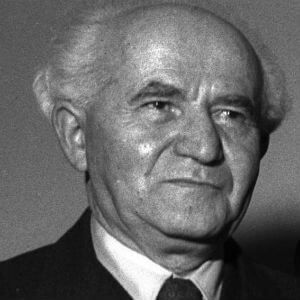
David Ben-Gurion
Born: David Grun, 16 October, 1886, Plonsk, Russian Empire (today Poland)
Died: 1 December, 1973
Terms as Israeli prime minister: 1948-1954, 1955-1963
Spouse: Paula
Considered Israel’s founding father, Ben-Gurion’s passion for Zionism went back to his youth — his father was a leader in the Hovevei Zion movement. While a student at the University of Warsaw, Ben-Gurion joined the Social-Democratic Jewish Workers’ Party, perhaps better known by its Hebrew name, Poalei Zion. He moved to Ottoman Palestine in 1906 and in the years leading up statehood, became the leading figure in the yishuv, the organized Jewish community.
Though bitterly opposed to the British White Paper of 1939, which severely restricted Jewish immigration, when World War II broke out, Ben-Gurion urged the yishuv to “support the British as if there is no White Paper and oppose the White Paper as if there is no war.”
In September 1947, Ben-Gurion and leaders of the Orthodox Agudat Yisrael party agreed to what’s known as “the status quo” on the role of religion in the emerging Jewish state. Among other things, this status quo agreed that Shabbat would be a national day of rest, that issues of personal status, such as marriage and divorce, would be administered by religious authorities, and that there would be no civil marriage.
Related reading: The War of Independence: The Sin of Israel’s Creation?
In two separate terms as prime minister, Ben-Gurion presided over the peaceful integration of rival underground organizations into the Israel Defense Forces, nation-building projects such as the establishment of new towns and institutions, the Sinai War, the absorption of thousands of Mizrahi Jews fleeing Arab lands, and the capture and execution of Nazi war criminal Adolf Eichmann.
Ben-Gurion stepped down in 1963 for personal reasons, but continued to speak out on issues. Ben-Gurion is buried on Kibbutz Sde Boker, in the Negev.
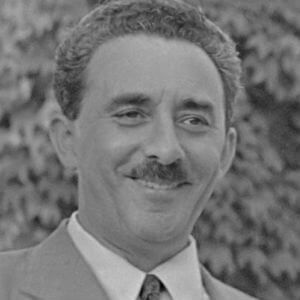
Moshe Sharett
Born: Moshe Shertok, 15 October, 1894, Kherson, Russian Empire (today Ukraine)
Died: 7 July, 1965
Term as Israeli prime minister: 1954-1955
Spouse: Tzipora
Sharett’s family moved to Ottoman Palestine in 1906 when he was child and was one of the founding families of Tel Aviv in 1909. Sharett rose through the ranks of the yishuv, eventually becoming head of the Jewish Agency. Sharett’s prominence rose when he resolved the Tehran Children affair — when the Soviets deported 1,000 Jewish orphans from Poland who had been sheltered in the USSR during World War II. He went on to serve as Israel’s first Foreign Minister, forging ties with many countries and playing a critical role in securing Israel’s membership in the United Nations.
Sharett’s two-year term as prime minister was overshadowed by the Lavon Affair in which a number of Egyptian Jews were arrested over a failed Israeli covert operation. Also during his tenure, Israel obtained the Dead Sea Scrolls.
With Ben-Gurion’s return to politics, Sharett returned to his earlier post as foreign minister. However, no longer seeing eye-to-eye with Ben-Gurion, Sharett retired from politics two years later. He is buried in Tel Aviv.
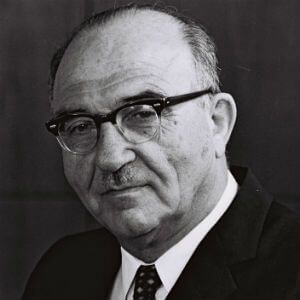
Levi Eshkol
Born: Levi Yitzhak Shkolnik, 25 October, 1895 Orativ, Russian Empire (today Ukraine)
Died: 26 February, 1969
Term as Israeli prime minister: 1963-1969
Spouse: Miriam (Eshkol had two previous marriages before becoming PM)
Eshkol moved to Ottoman Palestine in 1914 and later became one of the founding members of Kibbutz Dengania Bet. While working in Berlin on behalf of the World Zionist Organization in 1933, he negotiated the Haavara Agreement with Nazi officials. This agreement enabled Jews fleeing Nazi persecution to transfer a portion of their assets to British Mandatory Palestine. In later years, as director of Mekorot, Israel’s national water company, he was responsible for developing the National Water Carrier, which became operational while he was prime minister.
The most notable event of his term, by far, was the Six-Day War. After the war, Eshkol offered to return captured territories in exchange for peace, but the Arab world responded with the famous Three Noes of Khartoum followed by the establishment of the Jewish community of Kiryat Arba, next to Hebron — the first and only West Bank “settlement” during Eshkol’s term. Also during Eshkol’s term was the first archaeological excavations of Masada.
Eshkol’s health declined after the war; when he died in office of a heart attack, he became the first Israeli prime minister buried on Jerusalem’s Mt. Herzl.
Related reading: The Six Day War: A Concise Timeline
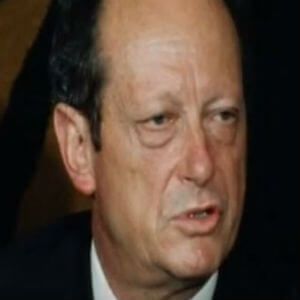
Yigal Allon
Born: Yigal Peikowitz, 10 October, 1918, Kfar Tavor, Ottoman Palestine (today Israel)
Died: 29 February, 1980
Term as Israeli prime minister: Served as interim prime minister for less than a month following Eshkol’s death in February, 1969.
Spouse: Ruth
Allon served barely a month as a caretaker prime minister between the terms of Levi Eshkol and Golda Meir. Allon is best known as the commander of the pre-state Haganah’s elite Palmach fighting force. It was he who carried out Ben-Gurion’s order to shell the Altalena arms boat off the shore of Tel Aviv.
Allon would later serve as foreign minister between 1974-1977. Allon was challenging Shimon Peres for leadership of the Alignment Party when he died of a sudden heart failure. He is buried on Kibbutz Ginosar, on the shore of the Sea of Galilee.
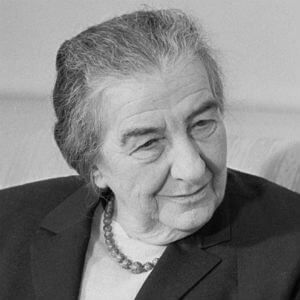
Golda Meir
Born: Golda Mabovitch, 3 May, 1898, Kiev, Russian Empire (today Ukraine)
Died: 8 December, 1978
Term as Israeli prime minister: 1969-1974
Spouse: Morris Meyerson
Golda grew up in Milwaukee, and became active in the Labor Zionist youth movement. She and her husband moved to Mandatory Palestine in 1921. She rose through the ranks of the Histadrut trade union and the Jewish Agency, and in 1938, was the Jewish observer from Palestine at the Evian Conference, where delegates from 32 countries discussed — but took no action on — the fate of Jewish refugees’ fleeing the Nazis. Months before the War of Independence broke out, she raised $50 million in the US which was used to purchase desperately-needed weapons. She received the very first Israeli passport when she departed for Moscow to represent the Jewish state in 1948. In the 1969 elections, Meir’s Alignment Party won 56 of the Knesset’s 120 seats, the the largest percentage of the vote ever won by a single Israeli party.
Key events during her term as prime minister included the Cherbourg Boats affair, the Munich Olympic massacre, the Yom Kippur War and the Ma’alot massacre. After the war, beleaguered by infighting and questions of how adequately prepared the country was for war, Meir resigned. Meir is buried on Mt. Herzl.
Related reading: The Yom Kippur War: A Turning Point
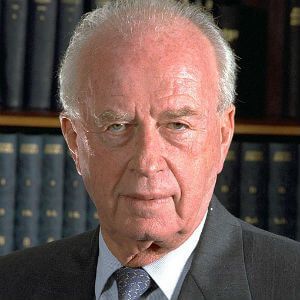
Yitzhak Rabin
Born: 1 March, 1922, Jerusalem, Mandatory Palestine
Died: 4 November, 1995
Terms as Israeli prime minister: 1974-1977, 1992-1995
Spouse: Leah
Rabin joined the Haganah’s elite Palmach force as a teenager and rose through the ranks of the IDF until he became Chief of Staff in 1964. After Rabin retired from the military, he became Israel’s ambassador to the US. During that posting, the US became a major arms supplier to Israel.
Notable event of Rabin’s first term as PM were UN General Assembly resolution 3379, which labeled Zionism as a form of racism, the establishment of Maale Adumim and Elkanah in the West Bank, and the Entebbe hostage rescue.
Rabin pulled himself out the running for Labor Party and national leadership following revelations that he and his wife had continued to maintain a joint bank account in Washington in breach of Israeli law. But Rabin remained active in the Knesset and served a stint as defense minister in the 90s.
The key events of his second term as prime minister were Israel’s recognition of the Palestine Liberation Organization (PLO) and the Oslo Accords, for which Rabin received a Nobel peace prize along with Shimon Peres and Yasser Arafat. Rabin was assassinated after delivering a speech at a peace rally in Tel Aviv. He is buried on Mt. Herzl.
Related reading: The Oslo Accords: Searching for Peace
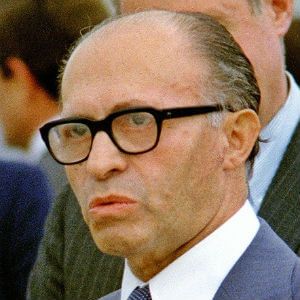
Menachem Begin
Born: 16 August, 1913, Brest, Russian Empire (today Belarus)
Died: 9 March, 1992
Term as Israeli prime minister: 1977-1983
Spouse: Aliza
Unlike the prime ministers who preceded him, Menachem Begin was a Revisionist Zionist, having grown up in the Hashomer Hatzair and Betar movements. As a young man, Begin studied law and sharpened his oratorical skills at the University of Warsaw. During World War II, as a Polish national, Begin joined the Free Polish Anders’ Army and was sent to Mandatory Palestine in 1942. Begin’s contacts in the Zionist underground persuaded him to stay and he received a “leave of absence without an expiration” allowing him to do so.
Begin’s Irgun differed from the Haganah in several ways. The Haganah was the official militia of the yishuv and — until the 1945 — refrained from attacks on British forces. The Irgun on the other hand, targeted British government and police in the hope of embarrassing Britain and forcing it out.
For years, Begin was in the Knesset opposition. But in 1977, he was elected prime minister in a stunning realignment of Israeli politics. Key events of Begin’s term as PM, include economic liberalization, the Camp David accords, the attack on Iraq’s nuclear reactor, Israel’s 1982 war in Lebanon and the annexation of the Golan Heights. Disappointed with the war in Lebanon and depressed by the death of his wife, Begin resigned as prime minister in 1983, spending his remaining years in seclusion. Begin is buried on Jerusalem’s Mt. of Olives.
Related reading: The Breakthrough: How Israel and Egypt Made Peace
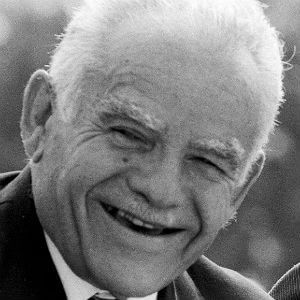
Yitzhak Shamir
Born: Yitzhak Yezernitsky, 22 October, 1915, Ruzhinoy, Russian Empire (today Belarus)
Died: 30 June, 2012
Term as Israeli prime minister: 1983-1984
Spouse: Shulamit
Shamir grew up in the Betar movement and cut short his studies at the University of Warsaw to move to Mandatory Palestine in 1935. He joined the Lehi (also known as the Stern Gang) when it splintered away from the Irgun. The British caught Shamir in 1946 and interring him in Africa. Shamir managed to escape to France before finally returning to Israel independence was declared. Before going into politics, Shamir worked for the Mossad, where he directed Operation Damocles, the assassination of German rocket scientists working in Egypt. A member of Begin’s Herut party, Shamir became speaker of the Knesset and then soon after, foreign minister.
As prime minister, Shamir failed to stabilize the Israeli economy, and public opinion turned against the IDF’s presence in Lebanon. An indecisive election in 1984 led to a national unity government and a rotational prime ministership with Shimon Peres. Notable events during Shamir’s terms included the outbreak of the First Intifada, the airlifting of 14,000 Ethiopian Jews in Operation Solomon, and the Gulf War, in which Shamir heeded US calls for restraint in the face of Scud rockets, the Soviet Union allowing the free emigration of its Jews, and the launch of Ofek-1, Israel’s first reconnaissance satellite.
After losing to Yitzhak Rabin in the elections of 1992, Shamir remained active in the Knesset for several more years. He died of Alzheimers and is buried on Mt. Herzl.
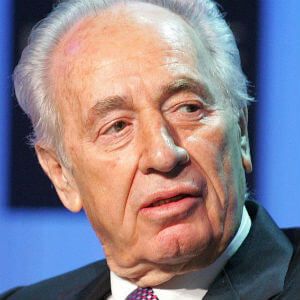
Shimon Peres
Born: Szymon Perski, 2 August, 1923, Wiszniew, Poland (today, Vishnyeva, Belarus)
Died: 28 September, 2016
Terms as Israeli prime minister: 1984-1986, 1995-1996
Spouse: Sonya
Shimon Peres moved with his father to Mandatory Palestine in 1932, became active in Labor Zionism, where he became David Ben-Gurion’s handpicked protege. Over the course of his career, Peres’ key activities included building of the Dimona nuclear reactor, acquiring French weapons and decisively pushing for the Entebbe rescue operation when other senior officials were reluctant,
In the 1984 elections, Peres’ party won more seats than any other party but was forced to agree to a national unity government with Likud in which Peres would serve as PM, Shamir would serve as Foreign Minister, then swap positions midway through. During Peres’ time at the helm, the IDF launched a long-range airstrike on the PLO headquarters in Tunisia, and redeployed its forces in Lebanon to a security zone in Southern Lebanon. The US also arrested Jonathan Pollard for providing classified documents to Israel. In 1988, inconclusive elections led Peres and Shamir to continue their power-sharing until 1990, when Peres failed in a bid to oust Shamir in a coalition maneuver referred to as The Dirty Trick.
Later, as Yitzhak Rabin’s foreign minister, Peres played a key role in Israel’s recognition of the PLO and subsequent Oslo accords. As acting PM following the Rabin assassination, Peres signed a peace deal with Jordan, initiated Operation Grapes of Wrath, a 16-day incursion into Lebanon in response to Hezbollah rocket attacks, and promoted Israeli internet use. Peres narrowly lost to Benjamin Netanyahu in the 1996 elections. Peres went on to serve as Israel’s president.
Peres’ political career spanned 70 years. When he retired at the age of 91, he was the world’s oldest head of state, and the last of Israel’s founding fathers. Peres is buried on Mt. Herzl.
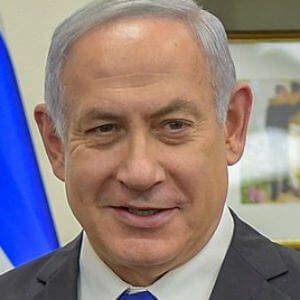
Benjamin Netanyahu
Born: 21 October, 1949, Tel Aviv, Israel
Terms as Israeli prime minister: 1996-1999, 2009-2021
Spouse: Sarah (Netanyahu had two previous marriages before becoming PM)
As a child, Netanyahu spent a number of years in the US. He served as a commando in the IDF’s elite Sayeret Matkal, then returned to the US to work as an economic consultant. Netanyahu came back to Israel ahead of the 1988 elections. His prominence rose in 1991, when he emerged as Israel’s principal spokesman to the media during the Gulf War. In the 1996 elections, Netanyahu defeated Peres to become Israel’s youngest prime minister and the first to be born in Israel after the Jewish state’s founding. This election was the only one in which people voted directly for a the prime minister.
Notable events during Netanyahu’s first term as PM included the liberalization of the economy, a failed assassination attempt on Hamas leader Khaled Mashaal, and the Wye River accord. He lost to Ehud Barak in 1999 elections and left politics for two years. But he returned, serving as Ariel Sharon’s foreign minister and then finance minister. As finance minister, Netanyahu privatized a number of state-owned businesses, including the El Al airline, Zim shipping, and a number of banks and more. He resigned in protest of Sharon’s Gaza disengagement.
In 2009 elections, Netanyahu placed second to Tzipi Livni, but right-wing parties won more overall Knesset seats. So when Livni was unable to put together a governing coalition, president Shimon Peres tasked Netanyahu with the job. Key events during Netanyahu’s second term included the Mavi Marmara affair, his battle with the Obama administration over the Iranian nuclear program, Operation Protective Edge following the kidnap and murder of three Israeli teenagers, the discovery of offshore natural gas reserves and expanding ties with African countries.
In his latter years in office, Netanyahu, dogged with corruption-related issues that eventually led to charges being brought against him, held onto power tenaciously, with supporters nicknaming him a “magician” for his ability to snatch victory from the jaws of political defeat. Eventually, though, he was unable to pull another rabbit out of his hat when Yair Lapid and Naftali Bennett teamed up to form a coalition in 2021, ending Netanyahu’s 12 consecutive years in office.
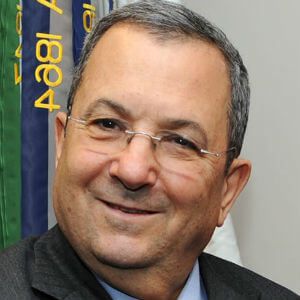
Ehud Barak
Born: Ehud Brog, 12 February, 1942, Kibbutz Mishmar HaSharon, Mandatory Palestine
Term as Israeli prime minister: 1999-2001
Spouse: Nili (Barak had a previous marriage before becoming PM)
Having served in the army for 35 years and participating a number of successful commando operations, Ehud Barak is Israel’s most-decorated soldier. As the IDF Chief of Staff during Rabin’s term of office, Barak was a key figure in the implementation of the Oslo accords. He went into politics in 1995, became leader of the Labor Party, and defeated Benjamin Netanyahu in the elections of 1999.
Key events of Barak’s term included the IDF’s withdrawal from Southern Lebanon, the Camp David II peace talks with Yasser Arafat and Bill Clinton, and the outbreak of the Second Intifada. He lost the 2001 elections to Ariel Sharon and left politics. He later returned, serving as defense minister for Ehud Olmert and Benjamin Netanyahu. He has not been involved in politics since 2012, though he often speaks out on TV and in newspaper columns.
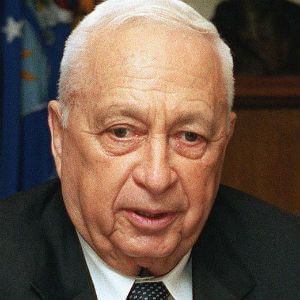
Ariel Sharon
Born: Ariel Scheinermann, 26 February, 1928, Kfar Malal, Mandatory Palestine
Died: 11 January, 2014
Term as Israeli prime minister: 2001-2006
Spouse: Lily (Sharon had a previous marriage before becoming PM)
Sharon was a commander in the IDF since its creation in 1948. As commander of Unit 101, he led reprisal raids against Arab fedayeen. During the Yom Kippur War, Sharon turned the tide on the Sinai front by crossing the Suez and encircling the Egyptian Third Army. As defense minister, he launched the 1982 war in Lebanon. Mounting casualties, and a massacre of Palestinian refugees in the Sabra and Shatilla camps by Israeli-allied Christian Phalangists made the war, and Sharon, deeply unpopular and he resigned, becoming a minister without portfolio.
Key events during Sharon’s term in office include Operation Defensive Shield and construction of the West Bank security barrier, Hamas winning PA elections, and the Gaza disengagement. In 2001, he suffered a stroke which left him comatose for eight years. Sharon is buried at his Sycamore Ranch in the Negev.
Related reading: Israel’s Great Risk for Peace: The 2005 Gaza Disengagement
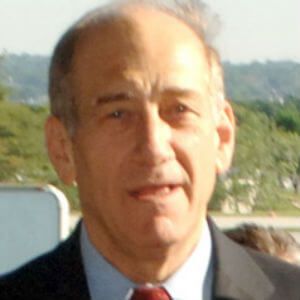
Ehud Olmert
Born: 30 September, 1945, Binyamina, Mandatory Palestine
Term as Israeli prime minister: 2006-2009
Spouse: Aliza
Olmert was first elected to the Knesset at the age of 28. He rose through the ranks eventually becoming a cabinet minister, then pivoting to successfully run for mayor of Jerusalem. He returned to the Knesset and the cabinet with Ariel Sharon.
Following Sharon’s stroke, Olmert became interim prime minister and called for elections, which he won. Key events of his term was the 2006 War in Lebanon, a successful airstrike on a clandestine Syrian nuclear reactor, Hamas violently seizing control of Gaza, the abduction of Gilad Shalit, and Operation Cast Lead in response to Gaza rocket fire. He resigned in 2008 amid mounting investigations into corruption and bribery during his time as a cabinet and mayor. Olmert was the first sitting PM to be convicted. He served 16 months in prison. He currently lives in Tel Aviv.
Naftali Bennett
Born: 25 March 1972, Haifa, Israel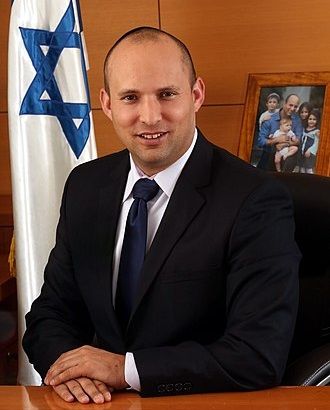
Term as Israeli prime minister: Entered office 13 June, 2021
Spouse: Gilat
Naftali Bennett assumed the premiership after Netanyahu — dubbed “King Bibi” — was finally dethroned after being in power since 2009.
A religious Jew who made a fortune with multiple hi-tech exits, Bennett is a leading proponent of the Jewish people’s right to live in their ancestral homeland. He previously worked as Netanyahu’s chief of staff prior to establishing along with Ayelet Shaked the right-wing My Israel movement, which eventually served as a platform for the pair to enter politics.
Over the following decade, Bennett accumulated experience at the upper echelons of government, serving as Israel’s Minister of Economy and Religious Services, then as Minister of Education and finally as Defense Minister.
After public pressure built on Netanyahu to step down due to numerous corruption probes, Israel was thrust into political turmoil that included four national elections between April 2019 and March 2021. Seeking to break the deadlock, Bennett partnered with a diverse array of right-wing, centrist and left-wing parties, in addition to an Islamist one, in order to end Netanyahu’s 12-year tenure. Bennett agreed to serve as prime minister for two years in a rotation government, following which Yair Lapid would assume the reins.
Bennett was sworn in on 13 June 2021. He is the second prime minister, after Netanyahu, to be born after the establishment of the State of Israel in 1948.

